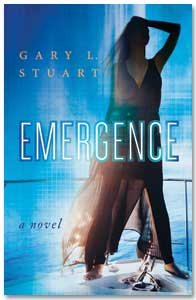Who would have thought it would come to this? Political violence broadly defined, includes guerrilla warfare, insurgency, terrorism, rebellion, revolution, rioting, and civil war. Narrowly defined, it includes J6 and several other outrages from 2000 to 2020. The Journal of Democracy put it this way. “Recent alterations to violent groups in the United States and to the composition of the two main political parties have created a latent force for violence that can be (1) triggered by a variety of social events that touch on a number of interrelated identities; or (2) purposefully ignited for partisan political purposes. This essay describes the history of such forces in the U.S., shares the risk factors for election violence globally and how they are trending in the U.S., and concludes with some potential paths to mitigate the problem.”[1]
There seems to be no question about our 21st Century’s reality—we have millions of citizens who are, at the very least, willing to undertake, support or excuse political violence. It isn’t just harm we are exposed to in this era of political violence. Harm comes in many forms. Political violence exclusively ends in physical violence, gun violence, hammer violence, knifings, kidnappings, mass shootings, and torture.
The Brookings Institute has given us a fair warning. “Political violence in the United States is a grave threat not only to the lives of Americans, but also to the health of American democracy. Violence poses a threat to political leaders and to Americans who participate in politics. It polarizes our already-divided country and undermines political discourse. . . [it comes from] “left-wing” violence and movements like Antifa, [and] white supremacist, anti-government, and other causes lumped under the label “right-wing.”[2]
We have a new moniker in the true crime world—the political criminal. “They are individuals who, motivated by conviction, commit an unlawful act designed to attack the social structure to bring about a reorganization of the system. Concomitantly, a political crime is any unlawful act committed by a political criminal.”[3] While the list of such individuals is very long, a good place to start is the number of politically committed individuals who stormed the U.S. Capitol on January 6, 2020. “Federal prosecutors have charged more than 1,000 people in relation to the Jan. 6, 2021, attack. These hundreds of people encompass “the most wide-ranging investigation” in the history of the Justice Department. . . Every U.S. Attorney’s office has been involved, as well as every FBI field office. As part of the $1.7 trillion government spending package passed in December, $2.6 billion was allocated to the U.S. Attorneys, in part to support the Jan. 6 prosecutions. In order to bring charges, the Justice Department is sifting through mountains of evidence and chasing down tips. The FBI says it has been reviewing almost four million files, including 30,000 video files. Those include police body-worn camera footage from five different law enforcement agencies, surveillance footage from the building, as well as the many videos on seized cell phones and posted online.”[4]
As a consequence of charging more than 1,000 people in the attack, 541 pleaded guilty, courts conducted 67 trials, 42 were convicted on all charges, and 1 person was acquitted. 445 people were sentenced to terms ranging from 7 days to 18 years.[5]
These numbers and consequences flood social media outlets at every level and startle the victims of political violence every day. But this blog is not about the violence itself, it is about writing ethically about political violence. Are those who commit political violence immoral? Pacifists have always argued that violence of any kind is immoral. But utilitarians accept some violence if it achieves a “good” for society.[6] Neither approach gets down to the ethicality of the thing.
Some, particularly on the far right, justify political violence as a desired end to achieve a political goal—and many clamors for revolution or civil war to achieve their political goals. “Political violence and revolution are two terms that have been closely associated with each other throughout history. Political violence is the use of physical force or violence to achieve political goals, while revolution is a fundamental and often violent change in the political or social order. While both are powerful tools for effecting change, they are also fraught with ethical questions and considerations.”[7]
Politico believes that our national security officials are still not prepared for a full-scale, far-right revolt in America. “We and others have written of the prospect of a new civil war in the United States, which seemed a real, if still remote, possibility immediately after Jan. 6. Now it is starting to look less plausible, given the strength shown by the political center in the 2022 midterms and President Joe Biden’s largely effective tenure in the White House. Yet full-scale civil war is not the only danger. Far-right Americans are highly unlikely to coalesce into a cohesive force that could wage war, but an army is not required to wreak sustained havoc and destabilize the country. In a deeply polarized environment, smaller pockets of armed unrest could easily ignite and spread disorder. The hyperbolic reactions of far-right Republican political figures and media commentators to the Trump indictment signal that they certainly do not believe the MAGA fever among their constituents and consumers has broken.”[8]
Like most bad things, political violence has a discernable catalyst. The George W. Bush Institute studied the problem and offers a solution. “Our political world is now much more polarized, much more willing to dehumanize the other side and use violent imagery in campaign ads. Some of this violence is directed at trying to silence moderate voices on their own sides. Politicians are calling on our worst angels rather than our best. We need to deal with this on a societal and political level. The political level is simpler. You need to get politicians who are willing to use violent imagery and violent rhetoric out of politics. You can’t have violence in democracy. They can have their political and policy beliefs, but they have to agree on the rules. And the rules say no violence, no threats. We know that primaries are now the only election that matters for nearly 90% of Congress. That pushes towards extremes.”[9]
At the end of all the debates, rallies, parades, political chest-thumping, and election deniers’ losses in court, we still face a much larger risk than just another attack on a government building. We face the bottoming out of American democracy. As long as we tolerate political violence in private, we risk an inevitable slide to autocracy. Election lies, political disinformation, extremism, mob rule, and white supremacist-inspired violence are per se unethical. We should say that every time we write another article, column, essay, op-ed, tweet, or blog about political violence. That’s our ethical obligation as writers.
[1] https://www.journalofdemocracy.org/articles/the-rise-of-political-violence-in-the-united-states/
[2] https://www.brookings.edu/testimonies/countering-organized-violence-in-the-united-states/
[3] https://www.ojp.gov/ncjrs/virtual-library/abstracts/political-crime
[4] https://www.npr.org/2023/03/25/1165022885/1000-defendants-january-6-capitol-riot.
[5] Ibid.
[6] https://en.wikipedia.org/wiki/Morality_of_violence
[7] https://www.studocu.com/en-us/document/grand-canyon-university/philosophy-of-law/the-ethics-of-political-violence-and-revolution/56749592.
[8] https://www.politico.com/news/magazine/2023/04/21/political-violence-2024-magazine-00093028
[9] https://www.bushcenter.org/catalyst/creating-more-perfect-union/kleinfeld-combating-political-violence

I am an author and a part-time lawyer with a focus on ethics and professional discipline. I teach creative writing and ethics to law students at Arizona State University. Read my bio.
If you have an important story you want told, you can commission me to write it for you. Learn how.






 I am an author and a part-time lawyer with a focus on ethics and professional discipline. I teach creative writing and ethics to law students at Arizona State University.
I am an author and a part-time lawyer with a focus on ethics and professional discipline. I teach creative writing and ethics to law students at Arizona State University.  My latest novel is Emergence, the sequel to Let’s Disappear.
My latest novel is Emergence, the sequel to Let’s Disappear.  If you have an important story you want told, you can commission me to write it for you.
If you have an important story you want told, you can commission me to write it for you.